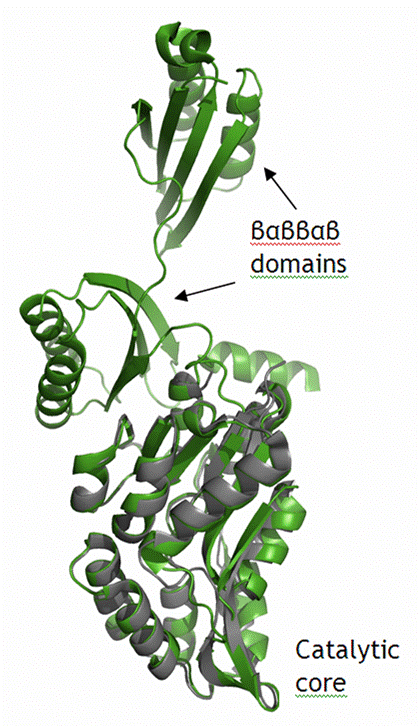serB
- Mycobacterium avium phosphoserine phosphatase (SerB):
Researchers from the Seattle Structural Genomics Center for Infectious Diseases (SSGCID)have determined the three-dimensional protein structure of Mycobacterium avium phosphoserine phosphatase (SerB). The pathogen M. avium is a hardy, aerobic, Gram-positive bacterium that causes three different illnesses in humans - glandular fever in children, pneumonia in patients prone to lung disease, and generalized infection in AIDS patients. Phosphoserine phosphatate plays a vital role in amino acid metabolism in all organisms. SerB catalyzes the reaction of 3-phosphoserine to L-serine, the final step in the biosynthesis of serine in both animals and bacteria. An unexpected feature of the SerB crystal structure was the observation of two new not observed in any other SerB crystal structures. This dissimilarity to homologous SerB enzymes necessitated the use of de novo phasing. We have adopted the use of iodide ion soaks and single wavelength anomalous dispersion (SAD) experiments as our primary method for de novo phasing. This method uses existing native crystals and in-house data collection, resulting in rapid, low cost structure determination. As a validated drug target, this protein's structure may provide a blueprint for structure-guided drug design.
For more information, please see the Protein Data Bank entry 3p96. This work is to be published in the March issue of the Journal of Structural and Functional Genomics.
